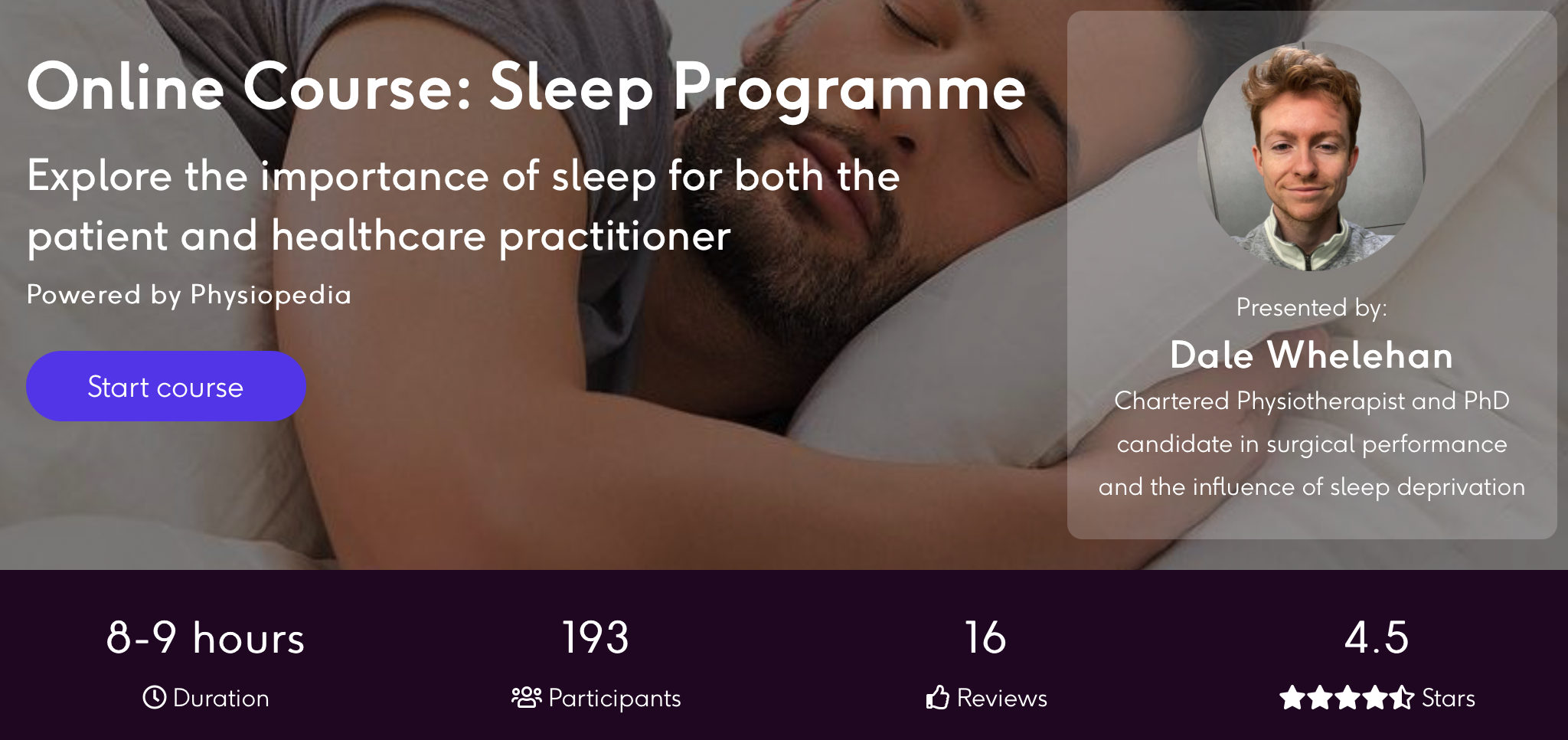We don’t know what type, duration or intensity of exercise is best at improving sleep during neurological rehab. But a new systematic review has tried to find out.
Sleep is vital to maintaining essential bodily functions as well as for emotional and cognitive well-being. Poor sleep is associated with a wide range of problems such as endocrine, metabolic and immune dysfunction as well as an increased risk of secondary diseases.
Explore The Importance of Sleep
Several studies have shown that sleep disorders are common among patients with neurological disorders because of alterations in pathophysiological mechanisms involved in sleep regulation and also side effects of medications.
This reduction in sleep causes problems during neurorehabilitation as recovery processes are affected and patients have less energy and effort to contribute to rehabilitation sessions. Fortunately exercise itself has been shown to improve sleep for neuro patients.
The problem is we don’t know what type, duration or intensity of exercise is best at improving sleep during neuro rehab. Fortunately a new systematic review published in Brain Sciences has tried to answer this question.
Methods
This systematic review both adhered to PRISMA guidance and was pre-registered on PROSPERO. The search strategy was created using PICO and is available in full. Pubmed, PEDro and Cochrane Library were the databases used with the search taking place in April 2021.
(((sleep disorder*) AND (rehabilitation)) AND (physical therapy modalities)
Articles were included within the results if they included neurological patients who were treated using supervised exercise, manual therapy or robotic rehabilitation. These interventions were compared again no intervention, unsupervised home exercise and usual care. The primary outcome was changes in sleep measures. and secondary measure included quality and quantity of sleep.
There were no restrictions on research design, publication date or place of research. Only articles published in English or Italian were included. Study eligibility and data extraction was performed by two co-authors with a third available to reach consensus. Risk of bias was assessed using RoB 2.0 and modified NOS respectively.
Results
In total 10 studies were eligible for inclusion all of which were published in English and a total of 747 patients were included. Of these 490 had a stroke diagnosis, 133 with PD and 13 with spinal cord injury. Six of the studies were RCTs with the rest being cohort trials.
The articles included within the review were on average of moderate quality with performance and attrition bias being the biggest methodological causes of concern.
Four studies used the Pittsburgh Sleep Quality Index (PSQI) as their primary outcome measure and all four were suitable for a meta-analysis. This analysis showed patients with neurological conditions that participated in regular (2-3x/wk) supervised resistance or high-intensity exercise lasting at least 30 minutes had more and better sleep than those who didn’t.
Furthermore, three studies demonstrated that regular endurance or resistance training (3x/wk) lasting for 30-60 minutes led to a reduction on the Fatigue Severity Scale (FSS) and Insomnia Severity Scale (ISI). Overall regular exercise leads of any type leads to an increase in total sleep time.
Overall exercise is a useful strategy for managing sleep disorders in neurorehabilitation. You can find out more by taking part in Dale Whelehan’s course below.
